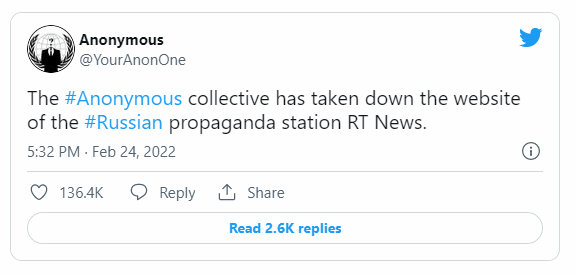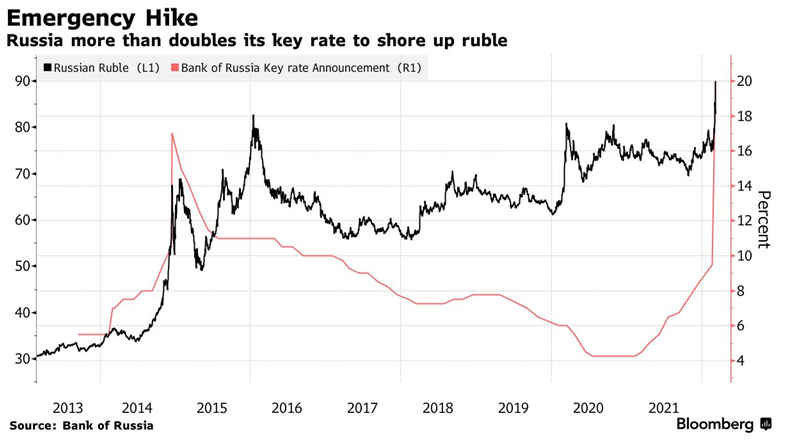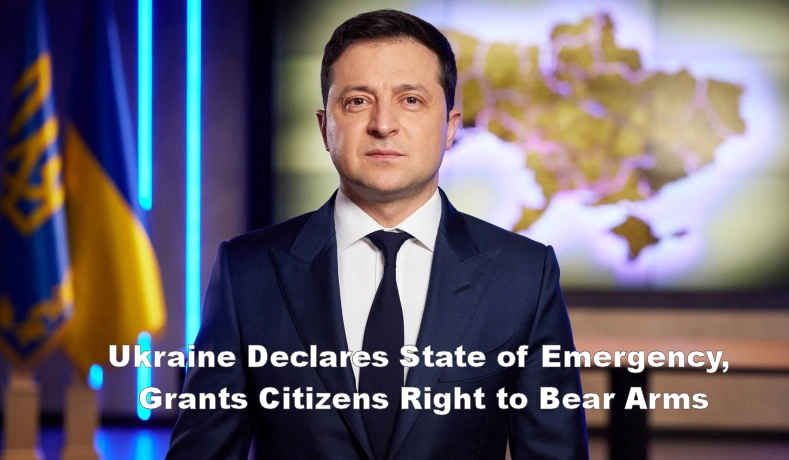As Russia defies worldwide opinion and executes one of the most significant unprovoked attacks since WWII, it is receiving some non-military pushback. Throughout history, there has always been an economic component to warfare. Waging war is an expensive proposition not only in human lives but also financially. And often, the “winner” ends up a loser when it comes time to pay the piper.
Bankers have been known to finance both sides of a war and even to finance enemies when a country refuses to pay what they owe. Kings have had to grovel before bankers to finance wars, and inflation has financed more wars than can be counted.
The “Behind the Scenes” Battle Against Russia
Modern weapons of economic warfare include the “SWIFT” system. According to Investopedia, SWIFT is behind most international money and security transfers. It stands for the Society for Worldwide Interbank Financial Telecommunications system. SWIFT is the messaging network banks, and other financial institutions use to send and receive money transfers worldwide.
The first phase of financial retaliation against Russia is to block SWIFT transactions. The second step was to target the Bank of Russia specifically and freeze the assets of specific Russian oligarchs, government officials, and companies. Over the last few months, we’ve noted that alternative technologies such as Ripple are developing based on Blockchain to streamline international transfers and help prevent capricious Government meddling in financial affairs, such as Trudeau’s attempt to freeze Truckers Financial assets.
One of the results of this concerted financial response to Russian aggression is that Russia’s Central Bank faces the steepest decline in the Ruble since 1998. Naturally, Russia’s central bank fought back by raising Ruble interest rates to their highest level in almost two decades and introducing capital exchange controls.
In the following chart from Bloomberg, we can see the interest rate (in red) shoot up from under 10% to almost 20% after stair-stepping up from just over 4% a year ago. We should also note that the black line indicates the number of Rubles per Dollar, so higher is worse, and as of this writing, the exchange rate is just over 100 (so it is “off-the-chart”). So at this point, one Ruble is worth roughly 1 cent, whereas back in 2013, it was worth about 30 cents.
Over the last few months, the Ruble has lost about 25% of its purchasing power, which will not make ordinary Russians happy with Putin. As a matter of fact, Russians in St. Petersberg have already been protesting Putin’s actions. And as is typical of repressive regimes, “Over 1,400 protestors have been detained in 51 cities — including the capital of Moscow”.
Cyber Warfare Against Russia
In addition to protests by ordinary Russians and economic warfare attacks by foreign governments, Russia is under attack by the international hacking collective “Anonymous”. The group announced they “want only peace in the world.” It appears they will be using their collective resources (i.e., millions of anonymous hackers from around the world) to assault Russia’s online infrastructure. That often comes in the form of Dedicated Denial of Service attacks (DDOS), a form of hacking that overwhelms servers.

The Right to Self Defense
In addition to the non-typical and economic warfare methods of fighting back, Ukraine has declared a “state of emergency” and granted its citizens the right to “bear arms” and defend themselves. They have called up military reservists between 18 and 60, adding nearly 200,000 troops to the country’s defense.
Why Ukraine Matters
In addition to the simple freedom of self-determination, Ukraine is actually significant economically and is being punished by Russia for having the audacity to try to join NATO. The Ukrainians have made great strides in the years since the break-up of the Soviet Union.
You might also like:


